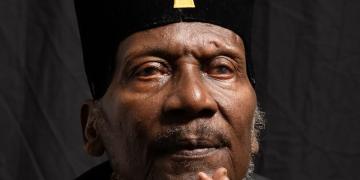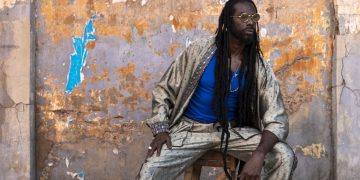The Mission: To Raise a Nation
by
Marc Albritton
On November 2, 1930 Haile Selassie and Menen Asfaw were crowned Emperor and Empress of Ethiopia. At this point in the thousands year history of Ethiopia, Haile Selassie, among other things undertook to momentous, extraordinary task of bringing the kingdom of Ethiopia from the feudal system of the prior centuries into the modern age of government and democratic thought. Notwithstanding debates on methodology, these are excerpts of the strategic foundation he endeavored to lay so that a strong, free, African nation would one day emerge.
“It is axiomatic that development in any country must proceed simultaneously in all areas of its life. As a country advances economically, equivalent progress must be made in the creation of more highly developed social and political institutions as well. Any attempt to retard advancement in any single area will create serious distortions in the overall fabric of the nation. This principle we have always recognized, and in our actions we have been guided by it. The emphasis which we have given to education in our country has stemmed from our determination to eliminate ignorance and to prepare our people for the changes which Ethiopia’s emergence into the modern world would bring upon them.
It is also axiomatic that change begets change, that each step forward leads logically and inexorable to the next, and the next. Once unleashed, the forces of history cannot be contained or restrained, and he is naive indeed who says; “thus far will I will go and no farther.” This principle, too, we have recognized and followed.
When, decades ago, we turned Ethiopia’s face in the direction of progress and modernity we were secure in the knowledge that in so doing we best served our country and its people. We recognize then as we do today, that once embarked upon this course there could be no turning back. Ethiopia was committed to the fire and to whatever it might bring. Man may, at the outset, control the direction which events take, but once his choice is made, events soon escape his control and history proceeds by its own force and momentum.
The ultimate resource of a nation is its people. Unless this resource is employed for the benefit of the nation, unless the latest good which it represent is exploited to the maximum for the common good the nation will languish, poor in spirit, lacking in achievement. But no people can make their full contribution to the life of the nation which they owe allegiance unless they possess those few fundamental prerequisites indispensable to rendering their participation in the affairs of their country both possible and significant. The growth of a people is complex and interrelated. Man must be educated: he cannot concern himself with going beyond the day to day satisfaction of his physical needs unless he is fed, clothed and sheltered. He cannot come to grips with or cope with or understand the modern world unless he has been taught about it. He must be assured of a minimum economic security, nor can he acquire a significant degree of social consciousness to be able to subordinate his own personal interests to the good of the nation and the development of its society. Freedom, liberty, the rights of man: these mean little to the ignorant, the hungry, the ill-clothed and the badly housed.
All of this we have, from our earliest days, recognized, and in the years during which we have guided and directed the destinies of the Ethiopian people and nation, we have endeavored to accommodate and give due consideration to this basic truth.
The power which you possess is but one side of the coin; the other is responsibility. There is no power or authority without responsibility, and he who accepts the one cannot escape or evade the other. Each one of you and each servant of the Ethiopian nation and people would do well to ponder these words, to take them to his heart, and to guide his conduct in accordance with their teachings. This is the challenge which faces you today. Let your labors here during the coming year demonstrate your capacity to meet it. May Almighty God guide and assist you in your work.” – Excerpted from H.I.M Message to Parliament, Coronation Day-1966
On October 25, 2018 Sahle Work-Zewde was selected as Ethiopia’s first female president. Additionally, prior to that, Prime Minister Abiy Ahmed appointed women to half of all cabinet positions. Within the scheme of thousands of years of patriarchal society, this was a huge transition into transforming the sociopolitical groundwork of Ethiopia in specific and Africa in general. Africa’s greatest moments in history have always been when its women were empowered. Congratulations to Ethiopia, mission accomplished.
Speech referenced from The Mission: The Life, Reign & Character of Haile Selassie I Paperback – September 1, 2001by Hans W. Lockot
























